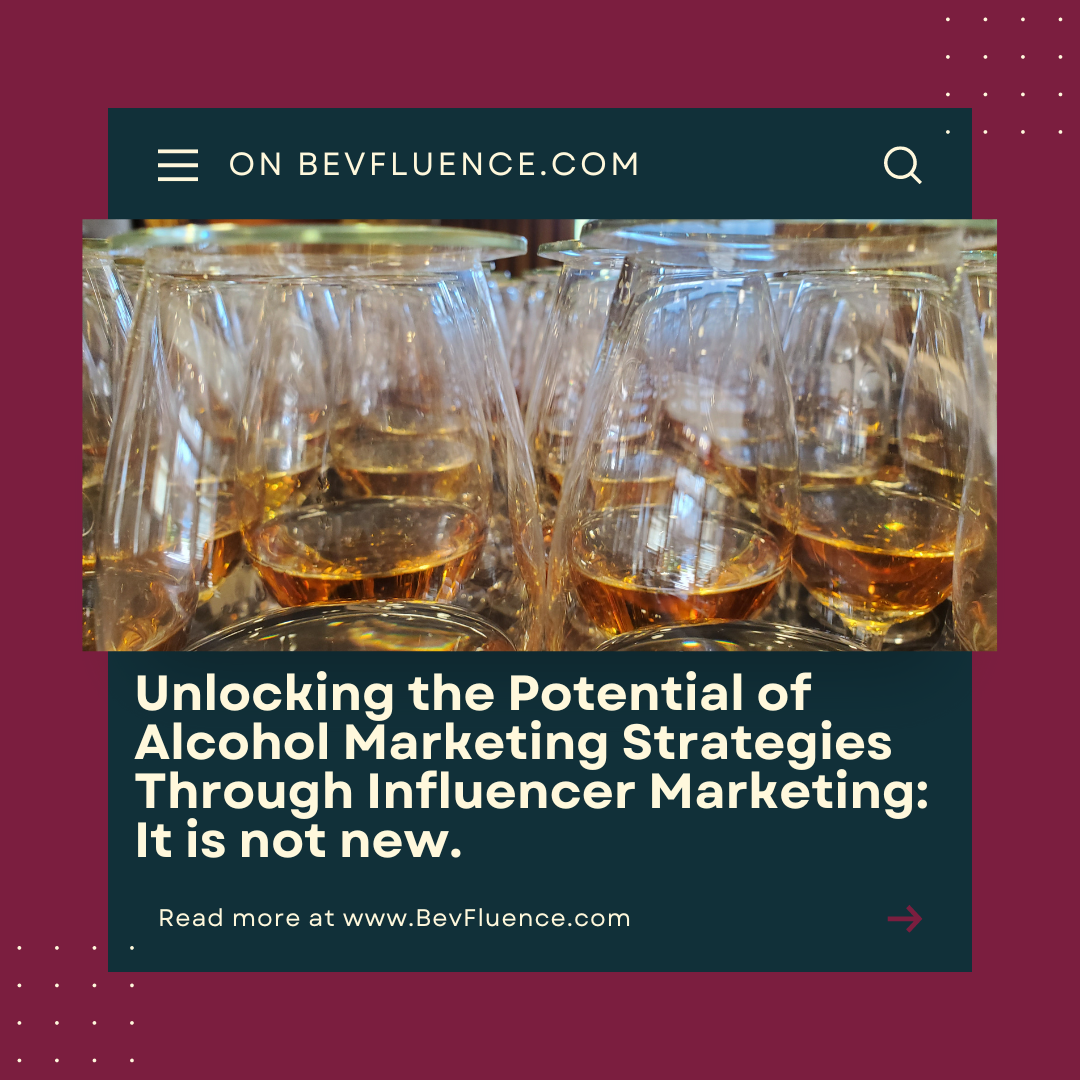Alcohol marketing is a key component of the beverage industry, driving sales and establishing a brand’s presence in the marketplace. It can be a tricky business, however, as there are strict regulations and guidelines related to advertising that must be considered. For this reason, many brands are turning to influencer marketing as a way to leverage existing relationships with followers and to create more meaningful and effective marketing campaigns. In this blog, we’ll explore what alcohol marketing is, the pros and cons of alcohol marketing, and how influencer marketing can be used to develop successful strategies.
What is alcohol marketing?
Alcohol marketing is the use of different strategies to promote and advertise alcoholic beverages, such as beer, wine, and spirits. This type of marketing is often used to increase brand awareness and to drive sales of a particular product. Alcohol marketing campaigns can range from traditional media, such as television and radio ads, to digital marketing strategies, such as social media campaigns and influencer marketing.
The pros and cons of alcohol marketing
Alcohol marketing has both advantages and disadvantages. On the plus side, alcohol marketing campaigns can be effective in increasing brand awareness and driving sales. Additionally, alcohol marketing can help to create a positive image for a brand, which can lead to increased customer loyalty. On the other hand, alcohol marketing can be controversial, and there are stringent regulations governing the use of certain types of messaging and images. Additionally, there is always a risk of associating a brand with negative behaviors or health risks, which can have a negative impact on the brand’s reputation.
Alcohol marketing examples
Alcohol marketing campaigns come in many forms, including television ads, radio spots, print ads, outdoor advertising, and digital marketing. For example, a beer brand might run a series of television commercials featuring a popular athlete or celebrity, or a wine brand might create a series of radio spots featuring a wine expert. Additionally, many alcohol brands are leveraging digital marketing strategies such as social media campaigns and influencer marketing to reach larger audiences.
Why influencer marketing is beneficial for alcohol marketing
Influencer marketing has become an increasingly popular strategy for alcohol brands looking to reach new customers and increase brand awareness. Influencers are individuals who have a large following on social media and a high level of influence over their followers. By leveraging influencers, alcohol brands can create more meaningful connections with their target audience and drive engagement with their campaigns. Additionally, influencer campaigns are often more cost-effective than traditional advertising, as they require less time and resources to create and manage.
Factors to consider when choosing an influencer for alcohol marketing
When choosing an influencer to work with, there are a few key factors to consider. First, it’s important to evaluate the influencer’s reach and engagement levels. Ideally, the influencer should have a large following and should be able to generate a high level of engagement with their content. Additionally, it’s also important to evaluate the influencer’s content and make sure that it aligns with the brand’s message and values. Finally, it’s important to ensure that the influencer is a good fit for the brand and that their followers are likely to be interested in the brand’s products.
How to use influencer marketing to develop successful alcohol marketing strategies
Once an influencer has been chosen, the next step is to develop a successful influencer marketing strategy. This involves creating content that resonates with the influencer’s followers and that is aligned with the brand’s message and values. Additionally, it’s important to create content that encourages followers to engage with the brand, such as product giveaways or contests. Finally, it’s important to track the success of the campaign and use the data to inform future campaigns.
Examples of successful alcohol advertising campaigns through influencer marketing
There have been a number of successful alcohol advertising campaigns that have leveraged influencer marketing. For example, Budweiser ran a successful campaign featuring influencer DJ Khaled, which generated over 1 billion impressions on social media. Additionally, Smirnoff ran a successful campaign featuring influencers such as Cardi B and Common, which generated over 4 million engagements. These campaigns demonstrate the power of influencer marketing and the potential it has for generating successful campaigns.
Tips on creating the best alcohol marketing strategies
When creating alcohol marketing strategies, it’s important to keep a few key tips in mind. First, it’s important to create a strategy that is aligned with the brand’s core values and message. Additionally, it’s important to create content that resonates with the target audience and encourages them to engage with the brand. Finally, it’s important to leverage influencers to create more meaningful connections with followers and to drive engagement with the brand.
Social media platforms for alcohol marketing
Social media is one of the most effective platforms for alcohol marketing campaigns. Popular platforms such as Facebook, Instagram, and Twitter are ideal for creating content that resonates with the target audience and encourages them to engage with the brand. Additionally, many alcohol brands are leveraging platforms such as Snapchat and YouTube to create content that is more targeted and engaging.
Conclusion
Alcohol marketing can be a tricky business, as some strict regulations and guidelines must be followed. For this reason, many brands are turning to influencer marketing as a way to leverage existing relationships with followers and to create more meaningful and effective marketing campaigns. When creating an alcohol marketing strategy, it’s important to keep in mind the pros and cons of alcohol marketing, as well as the factors to consider when choosing an influencer. Additionally, it’s important to leverage social media platforms to create content that resonates with the target audience and that encourages them to engage with the brand. By following these tips and leveraging influencer marketing, alcohol brands can create successful campaigns that drive sales and increase brand awareness.






